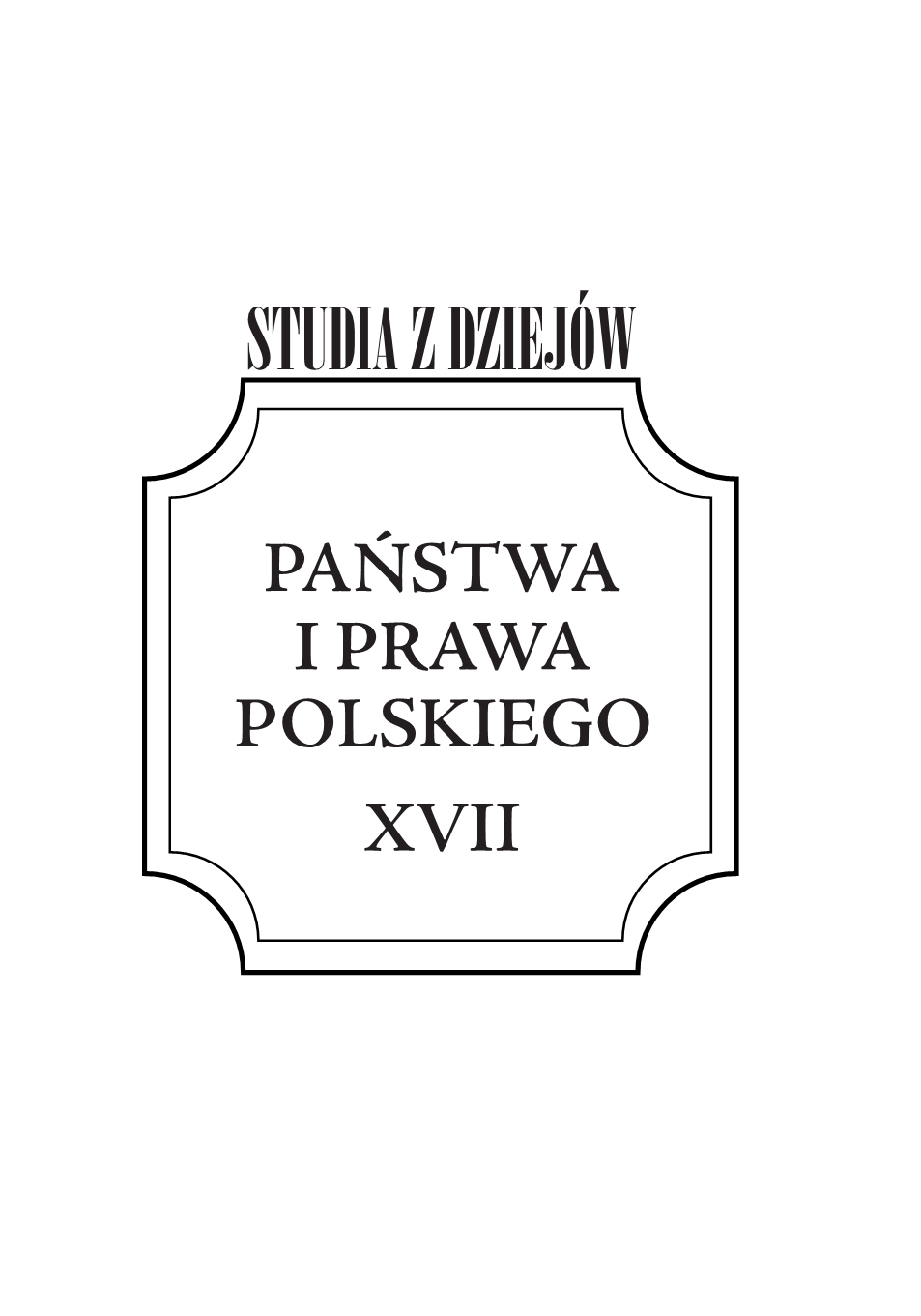Czy Łukasz Opaliński młodszy był regalistą? Filozofia ustroju państwa i postawa wobec liberum veto marszałka nadwornego koronnego
Was Łukasz Opaliński jr a monarchist? The Court Marshal of the Crown’s philosophy of the system of the state and attitude towards liberum veto
Author(s): Michał Zbigniew DankowskiSubject(s): History, Public Administration, Local History / Microhistory, 17th Century
Published by: Oficyna Wydawnicza KA AFM
Keywords: Opaliński; Commonwealth of Poland–Lithuania; 17th century; “golden liberty”; state philosophy; Court Marshal of the Crown; Wielkopolska; monarchists; liberum veto;
Summary/Abstract: Łukasz Opaliński, known as younger, represented one of the most powerful magnate clans in Wielkopolska and Poland in the 17th century. Holding a high senatorial office, that of the Court Marshal of the Crown – he made himself known as a writer and philosopher of the political system, and also as a superb politician. Older historiographic works perceived him as a monarchist and adherent of the successive courts. These were only the studies by Władysław Czapliński that portrayed him as a politician who was an apologist of the political system of the Commonwealth of Poland–Lithuania. In fact, Opaliński was a political maverick, and his views – expressed both in his writings and political actions – resulted from the correlation of an attitude of an enlightened magnate of mid-17th century, caring mostly about the interest of his clan, and further – that of the state, certainly proud of the political system of his country, yet perceiving also its erosion. Opaliński’s works in philosophy of state, notably Rozmowa plebana z ziemianinem, Obrona Polski, and Coś nowego?, prove the broad horizon of his thoughts. The dignitary's concepts are innovative, and more importantly in no way unrealistic. The magnate found the system of the Commonwealth the standard, and considered the “golden liberty” of nobility the most perfect social system, in which he was seconded by other writers of the time. Yet, Opaliński was aware of the shortcomings resulting from the accruing “exorbitancy”, and especially from the anarchisation of the Polish parliamentary movement. He perceived the existence of liberum veto as a necessity, however proper, yet was afraid that inappropriate people could exploit it, hence he postulated its use only in matters of state importance.
Journal: Studia z Dziejów Państwa i Prawa
- Issue Year: XVII/2014
- Issue No: 1
- Page Range: 37-47
- Page Count: 11
- Language: Polish

